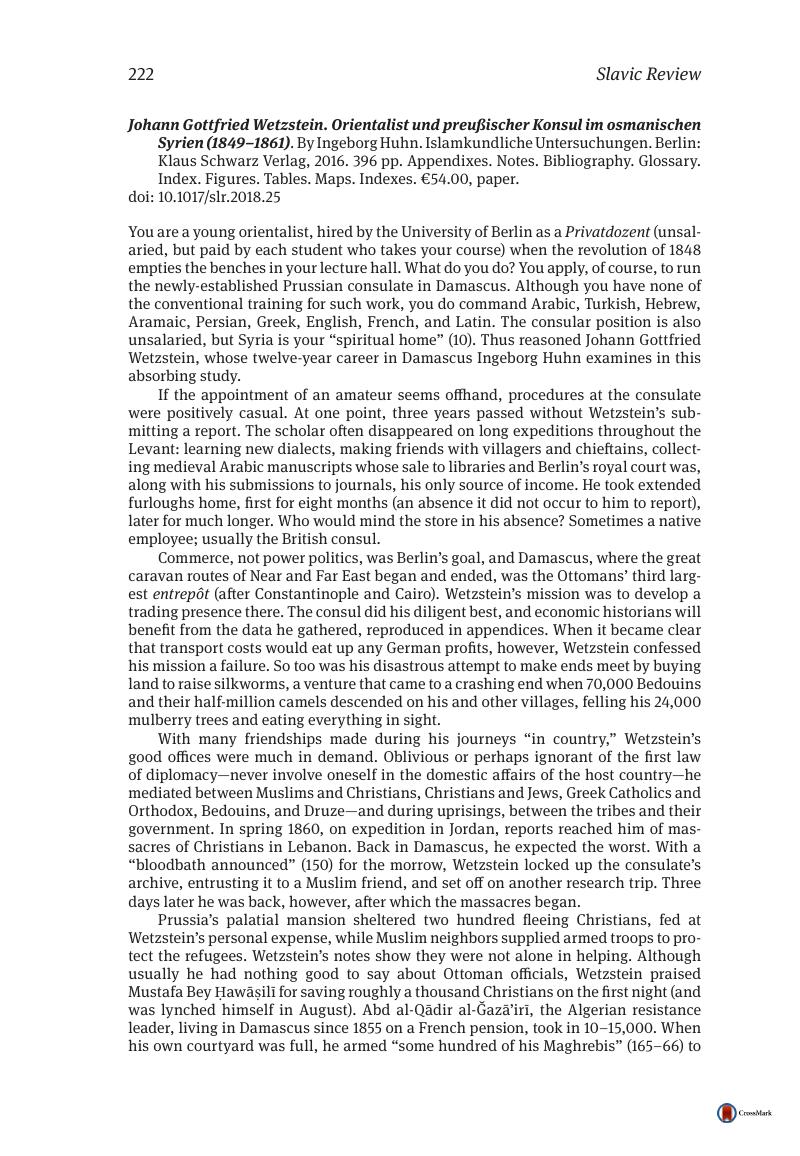No CrossRef data available.
Article contents
Johann Gottfried Wetzstein. Orientalist und preußischer Konsul im osmanischen Syrien (1849–1861). By Ingeborg Huhn. Islamkundliche Untersuchungen. Berlin: Klaus Schwarz Verlag, 2016. 396 pp. Appendixes. Notes. Bibliography. Glossary. Index. Figures. Tables. Maps. Indexes. €54.00, paper.
Review products
Johann Gottfried Wetzstein. Orientalist und preußischer Konsul im osmanischen Syrien (1849–1861). By Ingeborg Huhn. Islamkundliche Untersuchungen. Berlin: Klaus Schwarz Verlag, 2016. 396 pp. Appendixes. Notes. Bibliography. Glossary. Index. Figures. Tables. Maps. Indexes. €54.00, paper.
Published online by Cambridge University Press: 23 April 2018
Abstract
An abstract is not available for this content so a preview has been provided. Please use the Get access link above for information on how to access this content.

- Type
- Book Reviews
- Information
- Copyright
- Copyright © Association for Slavic, East European, and Eurasian Studies 2018


